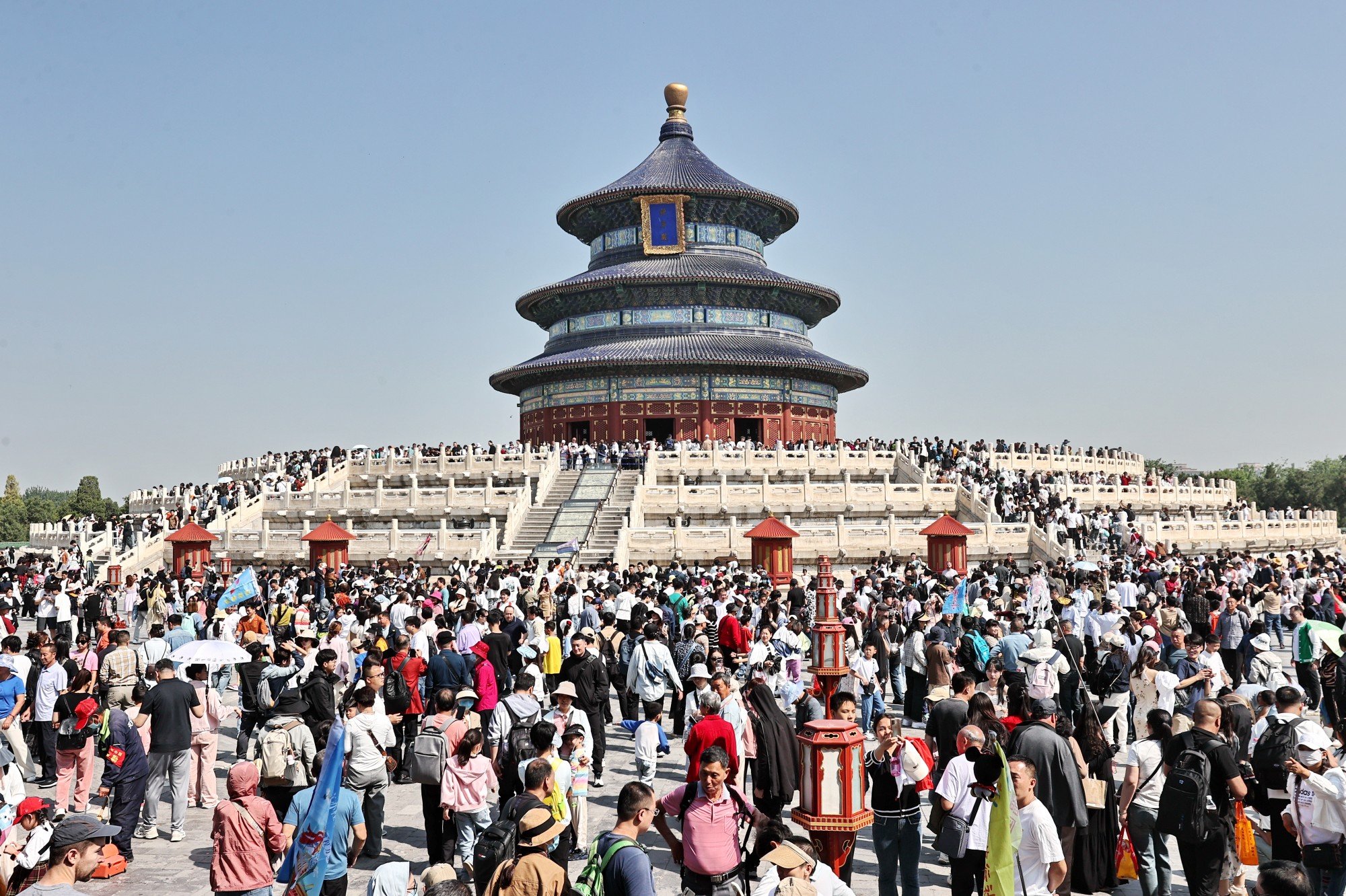
Hotels in China can attract Reit investors with 4% annual returns, or double their current yield, JLL says
- Reits with hotels in major cities like Beijing and Shanghai and annual returns of 4 per cent will be welcomed by market regulators, JLL says
- Recent boom in tourism bypassed big hotel chains as travellers turned to lesser-known resorts to avoid crowds
China’s hotel property owners should aim to double their returns to win over investors, before packaging their assets into listed real estate investment trusts or Reits, as the industry enjoys a revival in tourism.
Hotels in prime locations in major cities like Beijing and Shanghai with an annual return of 4 per cent will be welcomed by market regulators and investors looking for steady income, said Zhou Tao, head of hotels and hospitality at JLL in China. Reits backed by hotels could give the asset class a boost, he added.
The current estimated return of about 2 per cent is not enough to draw interest in Reits backed by hotel assets, JLL said. In Shanghai, some properties have reported about 3 per cent return annually, it added.
“Asset value of old or idled hotel properties can be enlarged with the right [market] positioning and sound management,” he said at a conference in Shanghai on Monday. “Hotels can generate good returns and will be deemed as lucrative assets to invest in and own.”

More than 40 Reits have been listed on the Shanghai and Shenzhen stock exchanges since June 2021 as part of China’s financial-market revamp to allow retail investors to diversify their investments from stocks and bonds. The government first allowed infrastructure Reits backed by toll expressways, and later widened the eligible assets to include rental homes and shopping malls.
Pent-up demand by tourists, improved operating capability by hospitality groups and growing appetite for a diverse asset portfolio among institutional funds are creating a good foundation for the launch of China’s first hotel-backed Reits, according to JLL.
Reits allow asset owners to raise cash from valuable but illiquid assets without losing control of them. The investment vehicle also gives investors the opportunity to collect regular dividends with income generated by the underlying properties.

“Reits backed by hotels can be issued once hotels can bring investors stable and strong returns,” Zhou said, adding that better space utilisation and management efficiency can add value to the package. “Renovation with meticulous planning can effectively maximise returns for existing hotels.”
The world’s second-largest economy enjoyed a surge in tourism during the recent Labour Day holiday from May 1 to 5. However, many big hotel chains failed to capitalise on the boom as budget-conscious travellers filled into lesser-known resorts. Stiff competition has also prevented hoteliers from raising room rates, according to analysts at Caitong Securities.

